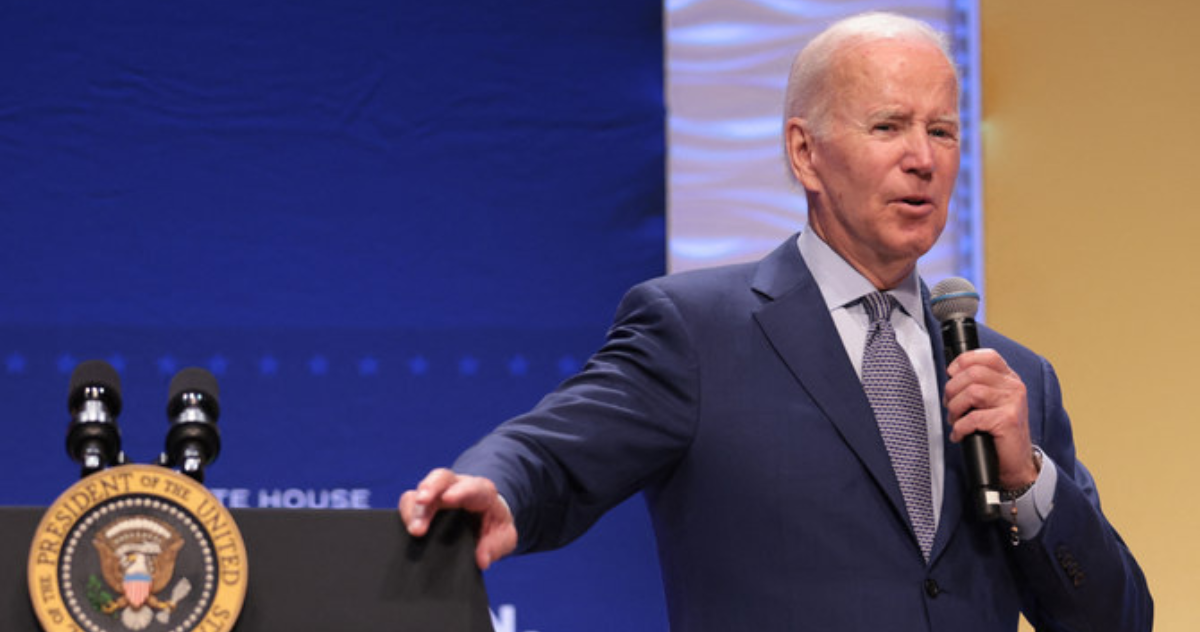Russia (Transatlantic Today)— Recently, It has come to light that, The Biden administration will blacklist foreign financial institutions that support Russia’s military-industrial complex. It is a part of Washington’s measures to contain Moscow’s war machine.
On Friday, an executive order is to be expected. It will allow the US administration to impose sanctions on financial firms helping Russia’s defense industry. These institutions ensure the Moscow equipment and other necessary goods to support fighting in Ukraine.
A senior administration official informed CNN that “provisions” in the executive order will take effect instantly after the president approves it. US officials say sanctions have seriously damaged Russia’s economy, but sanctions have not yet pushed Russia to discontinue its war.
Further, banks under sanctions would be restricted from access to the US financial system. “This announcement makes clear that those financing and facilitating the transactions of goods that end up on the battlefield will face severe consequences,” Deputy US Treasury Secretary Wally Adeyemo reported in a Financial Times op-ed on Friday.
A senior US official said Russia had expended“considerable time and resources” executing its intelligence services to find methods to avoid sanctions and export management. This included using “both witting and unwitting” financial negotiators to avoid constraints and source required components.
In this development, The Biden administration will work with US and European banks to notify them about the new rules. It will aim to ensure they communicate with their correspondent banks about how to not be under new sanctions. Otherwise, the senior official expressed that the risk of being cut off from the American financial system will be high.
The official also listed the items. It includes semiconductors, machine tools, chemical precursors, ball bearings, and optical systems. “What we’re trying to do is go after materials that are key to Russia’s ability to build weapons of war,” a senior US administration official said. “To get those materials, they need to use the financial system, which makes the financial system a potential choke point, and this is a tool targeted at that choke point.”
Meanwhile, many Western banks have backed out of Russia since the beginning of the war. However, many have stayed, generating excessive profits as they have acquired market share.
Austria’s Raiffeisen Bank International is a Western organization with the most influential operations. It has generated half of its revenues this year from business in Russia. According to the bank, officials said, its hands are bound because of Kremlin rules. It entraps profits in Russia and demands the approval of President Vladimir Putin for any business sale.
Earlier this year, the US Treasury department requested the bank to reveal details of all its lending operations in Russia fully.
Other financial institutions still working in Russia include Italy’s UniCredit and OTP Bank of Hungary. It is noted that China has appeared to be a significant source of finance for Russian businesses. Washington’s caution to remove non-compliant lenders from the US market could have meaningful diplomatic tensions with Beijing. The Industrial and Commercial Bank of China, Bank of China, China Construction Bank, and Agricultural Bank of China have all initiated seriously winding up their activities in Russia.
The move to target lenders is part of a broader push by the US and other countries to find another possible fund for Ukraine. It includes a potential action by the G7 to capture some of the $300 billion of frozen Russian assets.
The new legislation also comes as Republicans in Congress continue to intercept the Biden administration’s efforts to provide US grants for Kyiv.
Ukrainian forces are gearing up for a p
prolonged war of deterioration with Russia the following year after a failed summer counterattack.
Russia has expanded its military production. Analysts said Ukraine must draw more in-depth on its resources to maintain its lines of defense.
“Our overall goal here is to put sand in the gears of Russia’s supply chain, which we think is one of the most effective ways to slow Russia down,” the senior administration official said. “But for the Ukrainians to speed up frankly and go faster, they need our support, which will require Congress to act.”
On the other hand, the US and the UK are also cooperating to tighten their implementation of a price hat on Russian oil exports. It was inflicted by G7 countries last year.


























